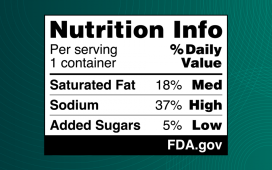Glucagon-like peptide 1 receptor agonist prescription linked to reduction in risk for suicidal ideation or attempts
By Elana Gotkine HealthDay Reporter
TUESDAY, Oct. 15, 2024 (HealthDay News) — For adolescents with obesity, glucagon-like peptide 1 receptor agonist (GLP1-RA) treatment is associated with a reduced risk for suicidal ideation or attempts, according to a study published online Oct. 14 in JAMA Pediatrics.
Liya Kerem, M.D., and Joshua Stokar, M.D., from Hadassah University Medical Center in Israel, examined the incidence of suicidal ideation or attempts following initial prescription of GLP1-RA (study cohort) or a lifestyle intervention without GLP1-RA treatment (control cohort) in a retrospective propensity score-matched cohort. Participants were adolescents aged 12 to 18 years with a diagnosis of obesity and evidence of an antiobesity GLP1-RA prescription or lifestyle intervention without GLP1-RA treatment; after propensity score matching, 3,456 participants were included in each cohort.
The researchers found that the study cohort had a significantly lower risk for suicidal ideation or attempts during 12 months of follow-up (1.45 versus 2.26 percent; hazard ratio, 0.67) and a significantly higher rate of gastrointestinal symptoms, used as a positive control outcome (6.9 versus 5.4 percent; hazard ratio, 1.41). There was no difference between the groups in the rates of upper respiratory tract infection diagnoses, used as a negative control outcome.
“Future prospective studies should assess the association of GLP1-RA treatment with psychiatric outcomes in adolescents with obesity,” the authors write.
One author disclosed ties to Novo Nordisk.
Copyright © 2024 HealthDay. All rights reserved.








